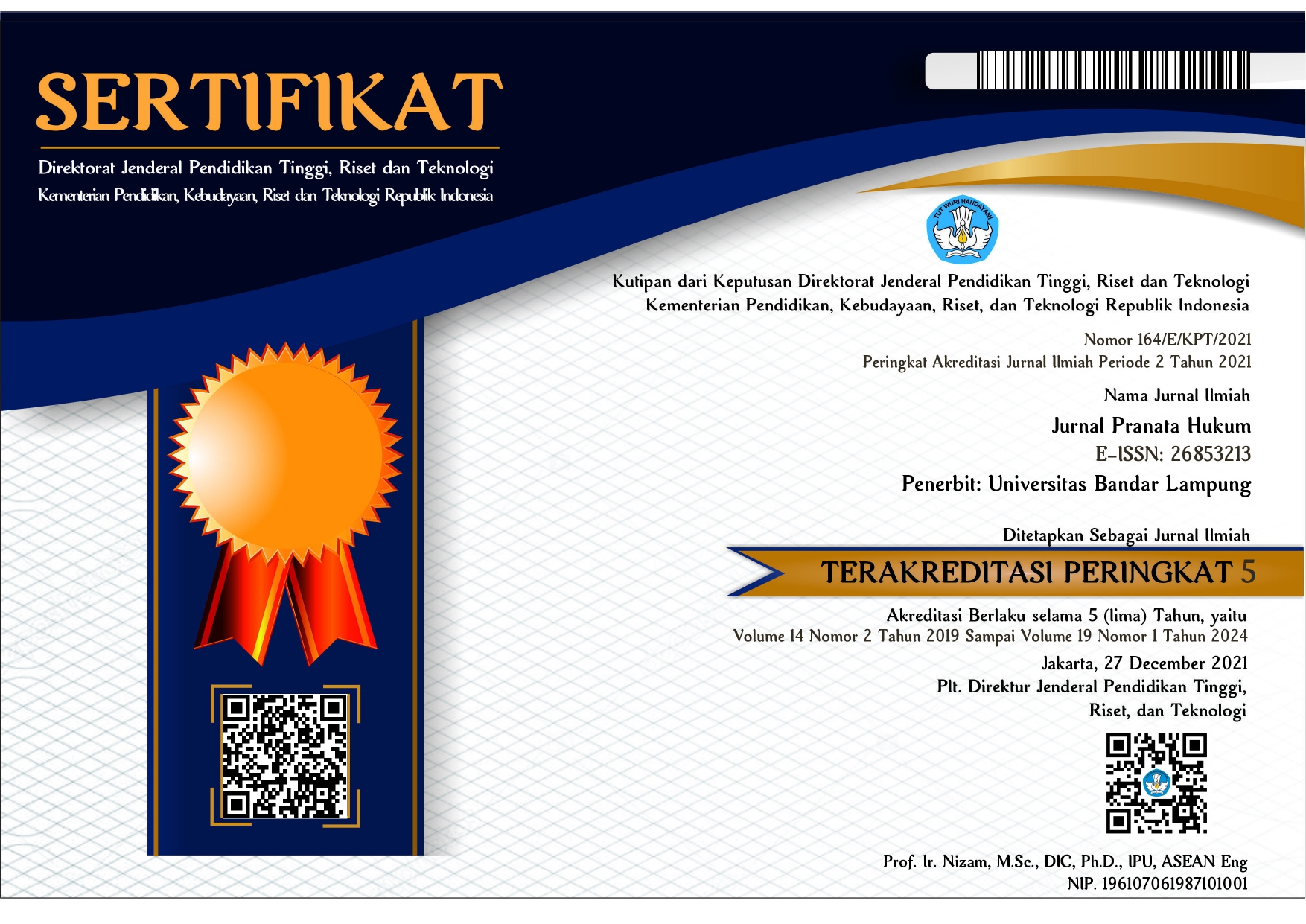PRINSIP DAN KEBIJAKAN DALAM PENGEMBANGAN KOTA LAYAK ANAK BERDASARKAN PERATURAN MENTERI NEGARA PEMBERDAYAAN PEREMPUAN DAN PERLINDUNGAN ANAK NOMOR 11 TAHUN 2011 TENTANG KEBIJAKAN PENGEMBANGAN KABUPATEN/KOTA LAYAK ANAK
DOI:
https://doi.org/10.36448/pranatahukum.v15i2.228Keywords:
Principles, Policies, Child-Worthy Urban DevelopmentAbstract
Family is the smallest government, where there are problems or conflicts that occur in both parenting, protection, supervision, education and giving freedom in choosing skills, favorites that can be developed and applied in society and for the future. Seeing more and more cases of bullying, violence in schools and in the community is growing, worrying parents. Based on that background, the formulation of the problem is whether the Principles and Policies in The Development of ChildrenWorthy Cities based on the Regulation of the Minister of State for Women Empowerment and Child Protection on Child Development Policy No. 11 of 2011. Based on Article 5, it affirms that the government in creating programs and policies that put children's rights first, both to grow and develop children because the current growth of the child will have an impact on their lives in the future. Give breadth so that the child can give his opinion according to his point of view, because we do not know that there is a great potential that exists on each side of the child. Children are the next generation of the nation, the pride of every parent and family, who must be looked after and protected as best they can. Under Article 6, its policy governs a. civil rights and freedoms; b. family environment and alternative parenting; c. basic health and well-being; d. education, leisure use, and cultural activities; and e. special protection. The principles in government management must be transparency, accountability, participation, information disclosure, and legal supremacy, and not discrimination or discriminating between tribes, races, cultures and others. The policy on children's rights is a civil right in which the right to identity is the child hasa birth certificate.
Downloads
Downloads
Published
Issue
Section
License
All articles published in the Pranata Journal are licensed under the Creative Commons Attribution-ShareAlike 4.0 International License (CC BY-SA 4.0). This license allows others to share, copy, distribute, adapt, and build upon the work, even for commercial purposes, as long as appropriate credit is given and derivative works are licensed under the same terms.





